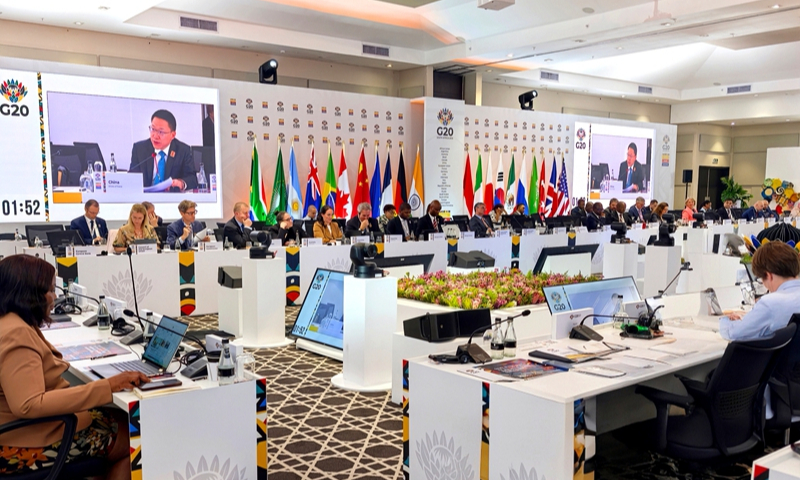China Urges G20 to Champion Free Trade and Multilateralism Amid Global Economic Uncertainty

At the recent G20 Finance Ministers and Central Bank Governors meeting in Durban, South Africa, Chinese Vice Finance Minister Liao Min delivered a strong message advocating for the preservation of multilateralism and the promotion of free trade. His call comes at a crucial time, as the global economy faces a complex landscape of challenges, including persistent inflation, supply chain disruptions, and geopolitical tensions.
Minister Liao emphasized that multilateralism is the cornerstone of a stable and prosperous global economy. He argued that protectionist measures and unilateral actions ultimately harm everyone, hindering economic growth and undermining international cooperation. He specifically highlighted the importance of the World Trade Organization (WTO) and urged G20 members to strengthen and reform the organization to ensure it remains effective in addressing modern trade challenges.
“In an increasingly interconnected world, cooperation is not an option, it’s a necessity,” Minister Liao stated. “We must work together to address the shared challenges we face and create a more inclusive and sustainable global economy.”
The call for free trade resonated strongly amidst ongoing debates about trade barriers and reshoring initiatives. Minister Liao pointed out that free and fair trade fosters competition, drives innovation, and creates opportunities for businesses and consumers alike. He stressed the importance of reducing trade costs, eliminating unnecessary barriers, and ensuring a level playing field for all participants.
The Durban meeting saw discussions on a range of pressing issues, including debt sustainability, climate finance, and the digital economy. Minister Liao also highlighted China’s commitment to contributing to global efforts to address these challenges. He reiterated China’s willingness to work with other countries to find solutions that benefit all. For instance, China has been actively involved in initiatives to support developing countries facing debt distress and has pledged to significantly increase its contributions to climate finance.
Why is this important for Australia? The Australian economy, heavily reliant on trade, would undoubtedly benefit from a renewed commitment to multilateralism and free trade. Increased global cooperation can lead to improved trade relations, reduced trade barriers, and greater access to international markets for Australian businesses. The stability fostered by multilateral institutions also provides a more predictable environment for investment and economic planning.
The G20 meeting served as a vital platform for dialogue and coordination among the world’s leading economies. While challenges remain, Minister Liao’s message underscores the importance of maintaining a commitment to open trade and international cooperation to navigate the current global economic headwinds and build a more resilient and prosperous future for all.
The focus now shifts to translating these discussions into concrete actions and ensuring that the principles of multilateralism and free trade are upheld in the face of growing global uncertainties.






